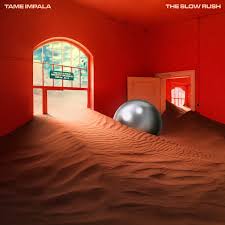DIRTY THREE - Toward The Low Sun
 Friday, March 2, 2012 at 10:07PM
Friday, March 2, 2012 at 10:07PM 
![]()
Three: The holy frickin' trinity. The first group number always capable of a majority vote. The power trio. The magic number.
There's something special about the number three that transcends cultures and customs, geography and generations. And music definitely gets it, too. Whether you're talking jazz or metal, three is the first number wherein one gets to experience—if the elements are just right—the beautiful way that human minds can both support and tear at one another from an always changing balance of power. Like a game of rock, paper, scissors, each instrument usually holds a characteristic edge over one, while being subservient to another. Let's examine the power trio, shall we? (This is kinda flawed as an analogy, but bear with me...) Guitar is, by virtue of frequency, far clearer (and therefore seemingly louder) than the bass. But drums are the instrument that control a guitar's ability to truly live up to the promise of its riffs in the eyes of an audience. And yet without the bass, the drums usually lack the rhythmic support and constance to achieve a blissful groove. Anyway...there must be something to it, right?
Dirty Three think so, but the manner in which—over the course of eight albums and numerous EPs— they've taken the above parameters and turned them inside out has been nothing short of utterly unique. And at the risk of incurring the wrath of my eleventh-grade English teacher, I'm not being flippant here: there is NO band out there that sounds like these guys do. And a lot of it has to do with the way that they use the power of three to their advantage.
Three generally works because you can have one musician each responsible for one of the basic elements of rock: 1. the high end; 2. the low end; 3. the beat. But Dirty Three don't care 'bout no three elements. Supplanting the bass guitar with a violin is the instrumental trio's first bold move, but they're just getting started. Each player then uses their playing to crap all over the most sacred commandments of their chosen tool.
Warren Ellis—even at his most tender—is a vio-lent-inist, wielding his bow in a manner that tears at the very literal and figurative fabrics of his strings and melodies. Far from being mannered or precise, he is the aggressive dramatist of their music—squealing, crying, sighing, spitting with love and pith. An outback Oscar Wilde who sucks the dusty marrow from every last inch of his own sorry bones.
Then there's Jim White, the drummer. Solid, controlled...no way. White drifts and slides, scuffs and trips, stampedes across his taunt drum skins like the feet of a hundred thousand beetles carrying a wounded elephant on their backs. He and Ellis stand musically facing each other. One pushes. The other pulls. Ellis bows left, White slams right. At the centre of this teasingly tottering dance—the fulcrum of their seesaw—is...the guitarist? The most unreliable timekeeper in music?
And yet, this too is true, for Mick Turner is the keel, the ballast, the root of Dirty Three's confounding configuration. As still musically as he is on stage, Turner paints (both in real life and here) the unacknowledged arch of stage under which Ellis acts and White dances. It is a truly selfless role, but one that the band would be hopelessly lost without—all grand gestures and physical emoting without any context.
If we're being truthful, Toward The Low Sun, their first record in seven years, is not their best record. But from a band as peerless as this (and promising a fix as unique as they do), it's still a damn sight better than most of what you'll find out there. And, if their recent extended absence has left you one of the uninitiated, it just might be the perfect way to ease you into their catalog. (Should you then find your curiosity piqued, may I present the three best Dirty Three albums, in no order, of course: Horse Stories; Whatever You Love, You Are; Ocean Songs.)


Reader Comments